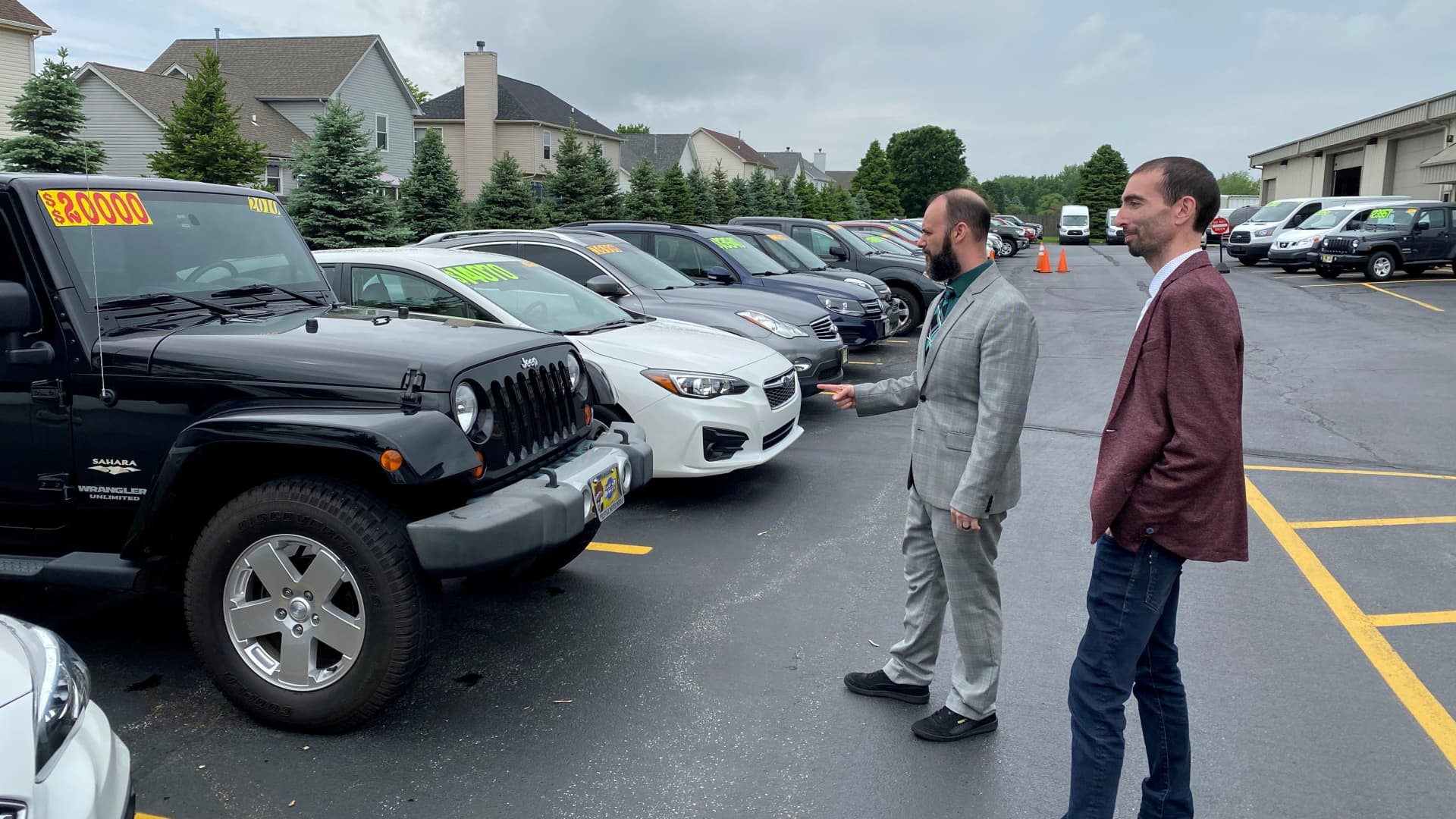Products You May Like
DETROIT — There’s a “renewed optimism” among U.S. car dealers heading into 2025, fueled by President-elect Donald Trump’s return to the White House as well as positive trends in interest rates and automaker-backed sales incentives, Cox Automotive reported Wednesday.
But dealers aren’t feeling more optimistic about the sale of electric vehicles, according to Cox’s “Q4 2024 Dealer Sentiment Index,” which is based on wide-reaching surveys of dealers after the U.S. presidential election in November.
“The outlook for EV sales in the coming months fell further, with a majority of dealers suggesting sales would decline in the next quarter. There is concern policies by the new administration are not going to help an already fragile business,” according to Cox.
Those potential policy changes under the Trump administration could include less federal funding for promoting EVs, such as an end to the current consumer credit of up to $7,500 for the purchase of one of the vehicles, as well as less strict fuel and emissions regulations.
“We are getting clear feedback that the tax credits are working in both the new and the used markets,” Cox Chief Economist Jonathan Smoke said in a release. “This is something that could change fairly rapidly next year, so I think the diminishing outlook is directly tied to the at-risk status of the EV tax credits.”

Cox’s market outlook index, which measures dealers’ expectations for the auto retail market in the coming quarter, jumped to 54 in the fourth quarter, up from 42 during the previous quarter. The higher the number, the more confident dealers are feeling about their businesses.
Dealer responses are weighted by dealership type and volume of sales to closely reflect the national dealer population. Data is used to calculate an index wherein a number over 50 indicates more dealers view conditions as strong or positive rather than weak or negative.
“This significant increase suggests that more dealers believe the auto market will be stronger in the next three months. One year ago, the index stood at just 41, one of the lowest readings in its history,” Cox said in a release.
Despite the positive outlook, the current market index score of 42 indicates that a majority of dealers still view the current retail auto market as weak, Cox noted. This score is slightly better than one year ago, but remains well below pre-pandemic norms and long-term averages.
“The recent resolution of political uncertainty following the presidential election has cleared the path for a more optimistic outlook on future auto market conditions,” Smoke said. “Coupled with the potential for supportive measures such as tax rebates and the possibility of lower interest rates, dealers are feeling more hopeful about the road ahead as we move into 2025.”
After the November election, 35% of dealers surveyed said the political climate in the U.S. is affecting their businesses, a significant drop from the 44% of all dealers and 49% of franchised dealers who said the same in the previous quarter.
Shares of publicly traded auto dealers have performed well this year, as pricing of new and used vehicles remains high. Shares of AutoNation, Lithia Motors and Sonic Automotive are up between 15% and 22% for the year, while Group 1 Automotive is the standout, up roughly 40% in 2024.
